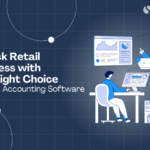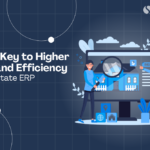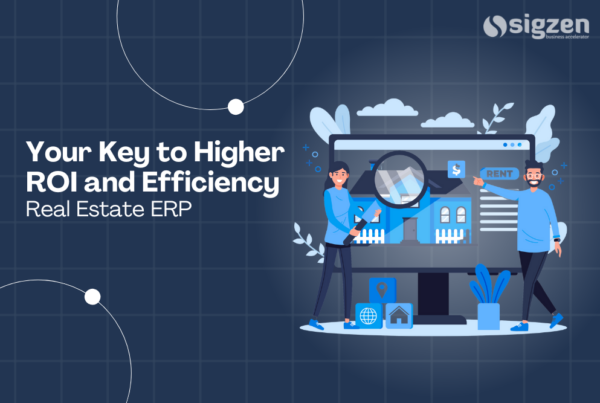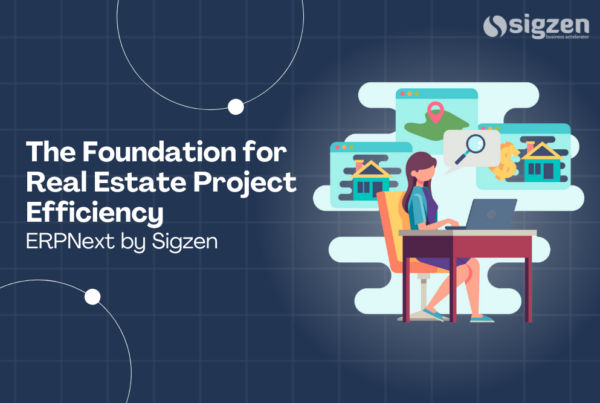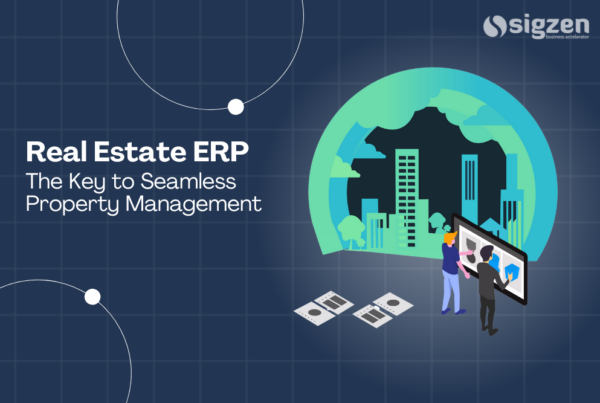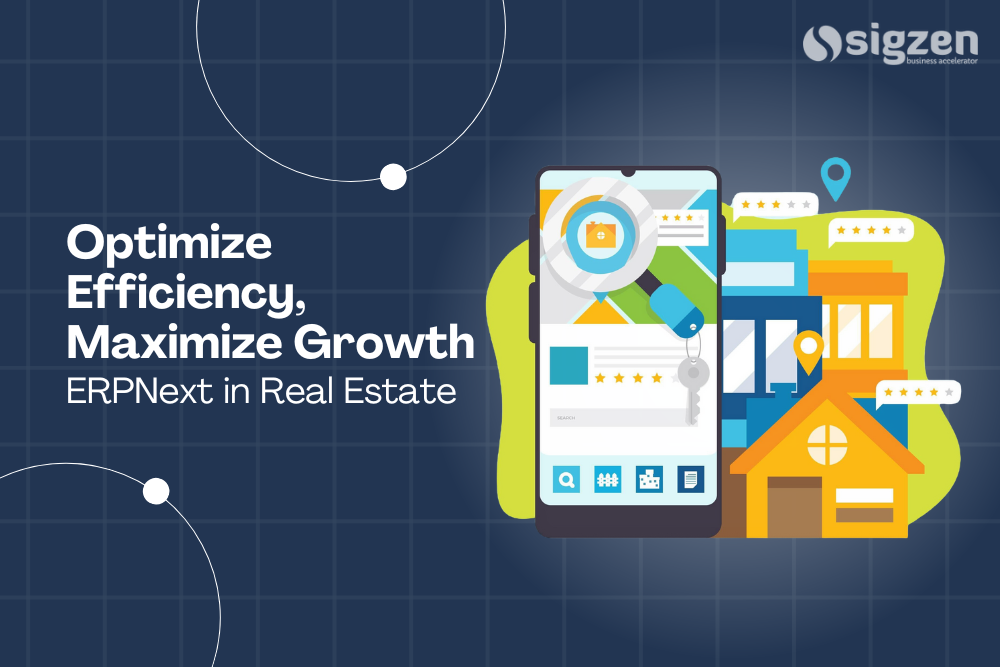
Introduction: Streamlining Asset Management in the Real Estate Industry with ERP
Managing real estate assets requires efficiency, precision, and robust systems to keep track of properties, financials, and ongoing projects. From residential properties to commercial assets, each one needs constant monitoring, financial planning, and management. Traditional asset management systems, however, often lack the integration and real-time visibility needed for streamlined operations. This is where ERP for Estate becomes a game changer.
Enterprise Resource Planning (ERP) systems like ERPNext provide real-time access to data, automate routine tasks, and integrate multiple business functions into a single platform. In the context of the real estate industry, real estate ERP software plays a critical role in managing assets, finances, and project management seamlessly, driving efficiency and profitability.
In this article, we will explore how ERPNext’s asset management module, along with project management functionalities, can transform asset handling, financial management, and real estate project execution. Let’s dive into the specifics of ERP and project management for real estate businesses, and how ERPNext offers the tools needed to excel.
ERPNext’s Asset Management and Its Role in Real Estate
For real estate businesses, managing both the physical assets (such as buildings and properties) and financial assets (such as investments, leases, and mortgages) is crucial. ERPNext, with its dedicated Asset Management for Real Estate, helps companies track, manage, and optimize these assets efficiently. The ERP system provides an integrated solution that connects asset management with financial tracking, offering real-time insights into asset value, depreciation, and maintenance costs.
1. Real-Time Asset Tracking and Reporting
With real estate ERP, businesses can track the status of assets in real-time, whether they are properties under development, owned properties, or leased assets. ERPNext offers:
- Real-Time Asset Tracking: View the value, location, and usage of assets at any time, ensuring better resource allocation and more informed decision-making.
- Depreciation Management: Automatically calculate depreciation for real estate assets, ensuring compliance with accounting standards.
- Comprehensive Asset Reports: Generate reports on asset performance, maintenance schedules, and financial valuation, providing transparency for better decision-making.
These functionalities help real estate businesses reduce errors and delays, ensuring that assets are properly managed and financial performance is aligned with operational goals.
2. Seamless Integration with Financial Management
One of the key benefits of ERPNext is its seamless integration with other modules, especially accounting and finance. This integration allows real estate companies to connect asset data with financial reports, improving accuracy and minimizing manual intervention. With ERP accounting system integration, users can:
- Track capital expenditures associated with each asset.
- Manage asset depreciation and its impact on financial statements.
- Monitor lease payments, loan repayments, and other financial aspects tied to asset management.
By integrating financial management with asset tracking, businesses can ensure that their financial and physical assets are aligned for optimal growth.
Key Features of ERPNext for Real Estate Asset Management
ERPNext offers several key features that directly enhance asset management in real estate businesses. Let’s explore these features in more detail:
1. Multi-Property and Multi-Location Management
Real estate companies often manage properties across multiple locations, whether residential, commercial, or industrial. ERPNext’s real estate ERP software provides:
- Multi-Property Tracking: Manage properties across various locations, tracking details such as tenant information, lease agreements, maintenance schedules, and rental income.
- Location-Based Reporting: Generate location-specific reports, enabling businesses to compare asset performance across regions or types.
2. Project-Based Management and Financial Tracking
For real estate development businesses, managing large-scale projects is a priority. ERPNext integrates project-based software functionality into the asset management module, allowing businesses to:
- Track Project Budgets: Manage budgets for construction or renovation projects, track expenses, and compare with forecasts.
- Manage Timelines: Oversee timelines for development projects, ensuring that assets are completed on schedule and within budget.
- Financial Planning for Projects: Use ERPNext’s financial tracking features to monitor project-related financials such as investments, costs, and profits.
By integrating enterprise resource planning project management, businesses can optimize both asset management and project timelines to ensure smoother operations.
3. Comprehensive Maintenance Management
Proper asset maintenance is crucial in real estate, especially for properties that generate rental income or are used for business purposes. ERPNext simplifies this process by:
- Automated Maintenance Alerts: Automatically schedule and receive alerts for regular maintenance checks and repairs.
- Track Maintenance Costs: Track maintenance expenses associated with each asset, from routine inspections to major repairs.
- Asset Lifecycles: Manage the lifecycle of assets, ensuring that each asset is well-maintained and replaced or refurbished when necessary.
By optimizing maintenance processes, real estate businesses can extend the life of their assets and reduce unexpected expenses.
Case Studies: How Real Estate Companies Benefit from ERPNext’s Asset Management
Case Study 1: Real Estate Developer Optimizing Project and Asset Performance
A real estate developer managing multiple commercial and residential projects faced challenges with tracking project timelines, asset performance, and financial data across various locations. After implementing ERPNext, the company experienced several improvements:
- Enhanced Project Management: With the project management module, the company was able to streamline project timelines, reduce delays, and keep within budget.
- Asset Valuation Accuracy: By integrating asset management and financial data, the company gained accurate insights into asset valuation and depreciation, helping with decision-making regarding new investments.
- Reduced Maintenance Costs: Automated maintenance scheduling and cost tracking reduced downtime and prevented expensive emergency repairs.
As a result, the company saw a 20% reduction in project delays and a 15% improvement in operational efficiency.
Case Study 2: Real Estate Investment Firm Managing Portfolio Assets
A real estate investment firm was struggling with manual asset tracking and reporting, which caused inefficiencies and errors. By using ERPNext for asset management, the company was able to:
- Improve Portfolio Visibility: Gain real-time visibility into the status of each asset, including rental income, lease terms, and maintenance schedules.
- Reduce Administrative Overheads: Automate financial reporting, tax calculations, and depreciation schedules, saving time and reducing errors.
- Improve Tenant and Lease Management: Track tenant payments, lease renewals, and occupancy rates to make data-driven decisions about the portfolio.
The firm experienced a 25% reduction in administrative costs and improved cash flow management through better tracking and reporting.
How to Choose the Right ERP for Your Real Estate Business
Selecting the right ERP system for your real estate business can be challenging. Here are some important factors to consider when choosing real estate ERP software:
- Industry-Specific Features: Ensure the ERP system has specialized features for real estate, such as asset management, lease tracking, and property management.
- Customization Options: Your ERP should be flexible enough to customize to the unique needs of your business, especially in terms of reporting and project management.
- Scalability: As your business grows, your ERP system should be able to scale to handle increasing data, transactions, and asset management needs.
- User-Friendliness: Choose an ERP system with an intuitive interface that minimizes the learning curve and enhances productivity.
Implementation Tips for ERP Solutions in Real Estate
Successfully implementing an ERP system in the real estate industry requires careful planning and execution. Here are some key tips for a smooth implementation:
- Define Clear Objectives: Understand your goals for asset management, project tracking, and financial integration to ensure the ERP system addresses all your needs.
- Engage Key Stakeholders: Involve team members from finance, project management, and asset management in the decision-making and implementation process.
- Provide Comprehensive Training: Make sure your team is fully trained on how to use the new system, particularly in terms of asset tracking and financial reporting.
- Monitor and Optimize: After implementation, monitor the system’s performance and optimize workflows to ensure that the ERP system is fully utilized.
Conclusion: Take Control of Asset Management with ERPNext
Managing real estate assets effectively requires a robust system that integrates financial management, project tracking, and asset performance data. ERP for Estate with ERPNext is the solution that real estate businesses need to streamline their asset management, reduce costs, and improve profitability. With its project management capabilities, financial reporting tools, and real-time asset tracking, ERPNext provides a comprehensive platform for real estate companies to manage their portfolios and projects more effectively.

